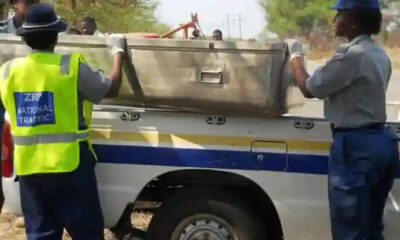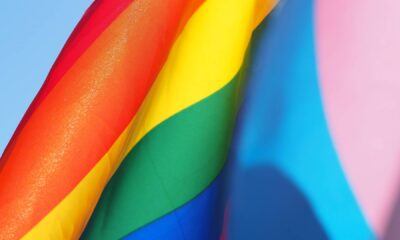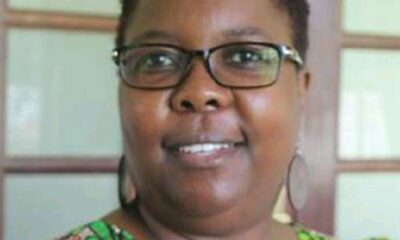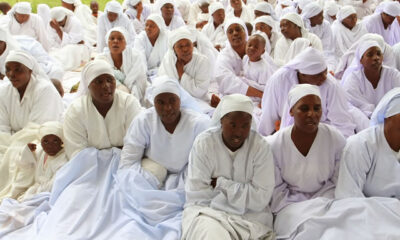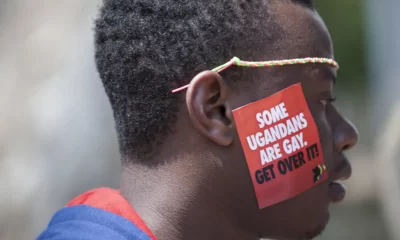NICK Moyo (name changed for ethical reasons) was jailed at Mutoko Prison last year when *they came face-to- face with their worst nightmare.
MARY MUNDEYA
On the very first day of incarceration, they found themselves being told to undress in the presence of a prison officer who was waiting to hand them their prison uniform.
Sometime in April last, they were arrested for stocktheft after stealing nine cattle belonging to their grandmother which they sold to fellow villagers.
They wanted money for surgery to “correct” a condition, which made them uncomfortable to change in front of other people, but the act landed them in hot soup.
After appearing before magistrate Elijah Sibanda, they were remanded in custody and were supposed to appear a week later for sentencing.
That is when all hell broke loose.
“When we were taking turns to change into prison gear, I was praying that the prison officer who was physically supervising how each of us was changing would not pay attention to me. That was not to be,” Moyo said.
“I was changing while facing the opposite direction. The prison officer then mocked me saying there was nothing special about my anatomy, which he had not seen before. He went on to call two other officers to come and witness my ‘weird’ behaviour.”
One of the prison officers ordered them to remove the prison gear they had put on so they could see what they were “supposedly” hiding.
That is when Moyo’s ambiguous genitalia was discovered, to much discomfort and displeasure.
Ambiguous genitalia is a rare condition in which a person’s external genital organs do not appear to be clearly either male or female.
“I had never felt so exposed. My sexuality is something that I had always kept a closely guarded secret because of the fear of being victimised. Only a few members of my family knew about my condition,” they said.
The days that followed were characterised by loneliness and sorrow as Moyo was put in solitary confinement. This is after the news of an inmate with both male and female reproductive organs spread like an uncontrollable veld fire.
Prison officers put Moyo in solitary confinement, fearing they could get raped by other inmates.
“I became a spectacle and almost every prison warden wanted to see my genitals. To them, my condition was unheard of. I also wasn’t allowed to mix with other inmates and for the whole time I was awaiting sentencing, I was alone and did not socialise with anyone which took a toll on my mental health,” they said.
They only managed to get reprieve when they were sentenced to 300 hours of community service at a local school after the magistrate ruled that the fact that they committed the crime to fund surgery costs constituted a special circumstance.
Moyo’s story is just one of the many cases of intersex people in Zimbabwe who are often humiliated and stereotyped as homosexuals not only in communities they live in but also in the hands of law enforcement agencies.
The constitution of Zimbabwe recognises males and females but not intersex people, thus the provision of public services specifically targeting persons who belong out of the “normal” gender bracket is currently non-existent.
According to Amnesty International: “There are millions of people around the world who have sexual characteristics that do not fit typical binary notions of male or female bodies. Many, though not all, of these people identify as intersex.
“Intersex is an umbrella term used to describe a wide range of natural variations that affect genitals, gonads, hormones, chromosomes or reproductive organs. Sometimes these characteristics are visible at birth, sometimes they appear at puberty, and sometimes they are not physically apparent at all and between 1.7% and 2% of the world’s population is born with intersex traits.
The United Nations Human Rights office in its 2015 United Nations Free and Equal campaign released a factsheet on the rights of intersex people.
The campaign exposed how intersex children and adults are often stigmatised and subjected to multiple human rights violations, including infringement of their rights to be free from stereotype and ill-treatment, as well as rights to health and physical integrity, equality and non-discrimination.
Often stigmatised as part of the lesbian, gay, bisexual, transgender, queer or questioning (LGBTI+) community, most intersex people live secretive lives from birth to avoid being misfits in society, which results in a lot of mental suffering throughout their lives, experts have said.
Although the rights of any gender that is not male or female is still a sensitive issue in Zimbabwe, various gender lobby groups such as Intersex Community of Zimbabwe (ICoZ) have managed to get an audience from legislators who are beginning to warm up to their plight.
“I’m proud that we have managed to get a buy-in from legislators who after several engagements have vouched to take our issues to Parliament,’’ said Ronie Zuze, founder and director of ICoZ.
One of the legislators who has been vocal on issues affecting the inter-sex community is Bulawayo senator Khaliphani Phugeni.
He says they have been denied their rights for too long.
“The plight of the intersex community is one that brings pain to my heart because what is clear is that the human dignity and human rights that are guaranteed by the constitution of Zimbabwe do not extend to them. It’s criminal, unforgivable and inhumane,” Phugeni says.
“If you look at the psychological, emotional and long term (effects), some of these people end up committing suicide because of the manner in which they are treated by various sectors of society and as a legislator I’m at the forefront of lobbying that intersex be a recognised gender in our country.”
For Nick Moyo, and others in similar circumstances, life goes on as they anxiously wait for a day when their rights will be constitutionally recognized, enabling them to have access to public services and amenities, including being catered for in the event of being imprisoned.
*Some intersex people prefer the gender pronoun “they”, rather than him or her.


